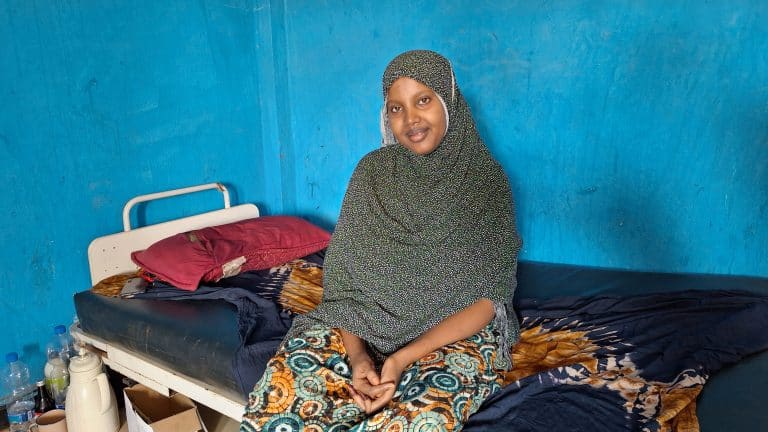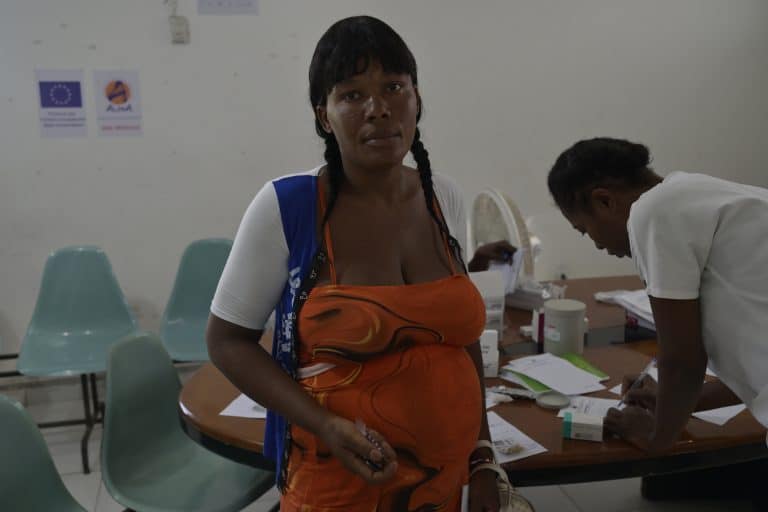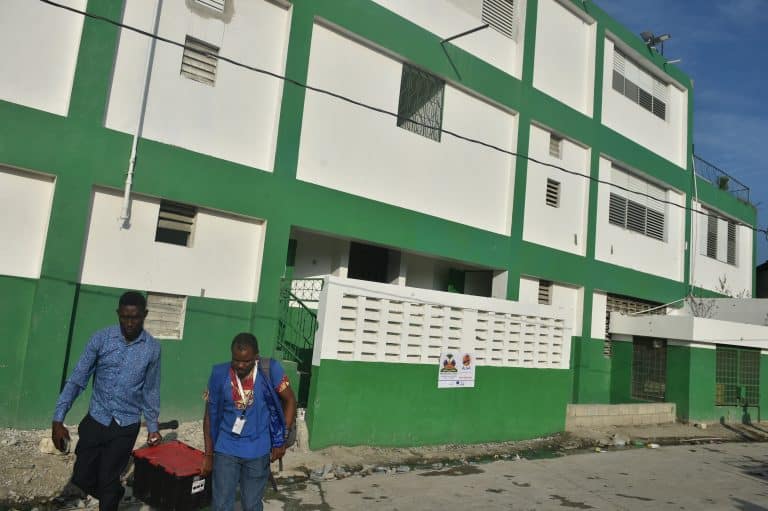What does your work consist of?
I am a clinical psychologist and I joined ALIMA to support the psychosocial care of patients suffering from COVID-19. As a technical referent in mental health and psychosocial support, I have two main objectives: to strengthen the capacities of the medical staff in order to improve the quality of care and to supervise the psychologists in their daily tasks.
Can you tell us about the training you provide?
It is a training on psychosocial care [i.e. global care, from moral support to mental health help, including information about the disease] of psychological distress in the context of COVID-19. An evaluation revealed that some patients suffer from psychological distress and that doctors and nurses have, for the most part, not been trained in psychological management. This training was deemed necessary so that the medical staff of the COVID-19 treatment center in Donka could deal with the different types of behavior observed, through listening to patients and basic care of psychological distress. The training alternates lectures and practical case simulations.
Who is targeted by this training?
The training targets people who are not specialists in mental health. That is to say, all the nurses and doctors at the Donka treatment center. In total, we expect to train more than 200 doctors and nurses.
Why is it important to train doctors and nurses in psychological care?
At the Donka treatment center, there are only eight psychologists, which is a small number compared to the needs. This training allows the medical staff to identify a psychological disorder and make a first basic treatment of the patients, before referring them to a psychologist. The psychosocial support activities, which are essential in this context, are thus reinforced.
What are the most common psychological disorders related to COVID-19 at the Donka treatment center?
In the specific context of the management of COVID-19, a number of disorders are common: acute stress, complicated bereavement-related disorders, depressive disorders, suicidal risk. There are also, but less frequently, disorders related to psychosis, such as delirium and delusion.
What are the specific situations encountered by health care personnel that require psychological care skills?
A high level of stress can lead to hostile, aggressive, violent behavior, or even refusal of medical care. Many factors can increase patient stress:
– First, economic reasons. We are in Guinea, where people live from day to day. Being hospitalized for one or two days can exacerbate already existing financial problems.
– Secondly, referral conditions. Some patients are brought to the treatment center by ambulances or by the police from their homes, without having time to inform their parents or pack a bag of clothes.
– Isolation also occurs. Visits from patients’ relatives, which normally help reduce stress, cannot take place at a COVID-19 treatment center.
– Finally, some patients have lost loved ones to COVID-19. The fact that they themselves tested positive and that there is still no specific treatment makes them think that they are going to die. This further exacerbates their stress.
What are the difficulties of returning home on the patient’s mental health?
Unfortunately, the risk of rejection and stigmatization is very high. We have noticed that there are patients who arrive at the center without informing their family and there are others who leave the center without telling them that they have been sick and treated.
What is ALIMA doing to reduce these risks of stigmatization and rejection?
Upon leaving the treatment center, patients have an exit interview with the psychologists. The interview allows patients to bring out any concerns they may have kept to themselves. An awareness session is conducted to prevent possible rejection in the community, within the family or at work. Patients are informed about the false beliefs circulating about COVID-19 that could lead people to reject them. In case of difficulty, cured patients can call ALIMA’s team of psychologists to talk about it and help them deal with these situations.
ALIMA’s activities in Guinea in the fight against COVID-19 are financed by the European Union.
The content of this publication is the sole responsibility of ALIMA and does not necessarily reflect the views of the European Union.
Cover photo: SYDPRODUCTION / ALIMA





